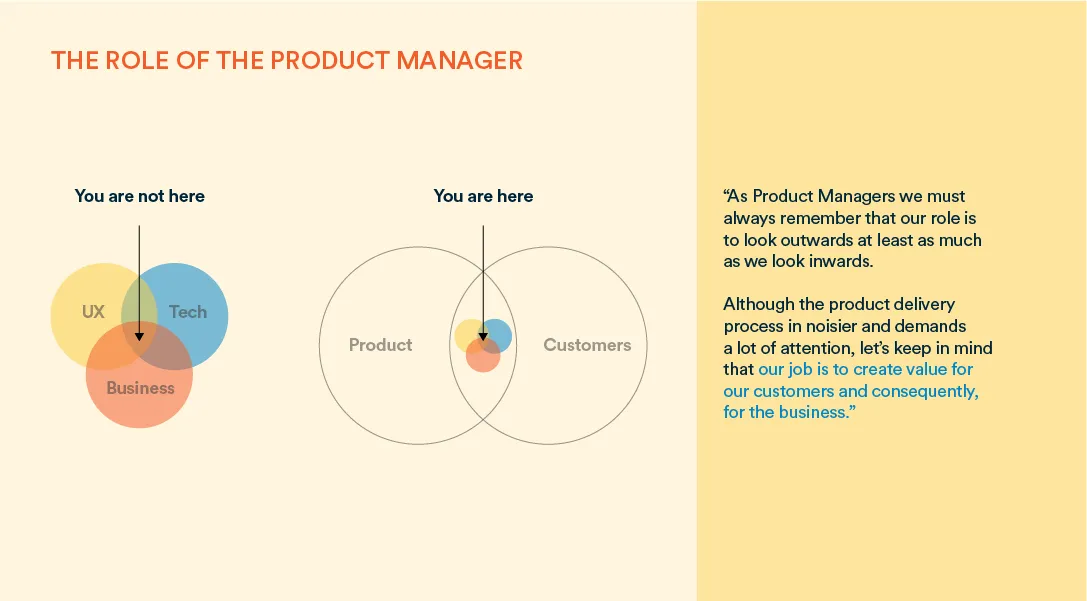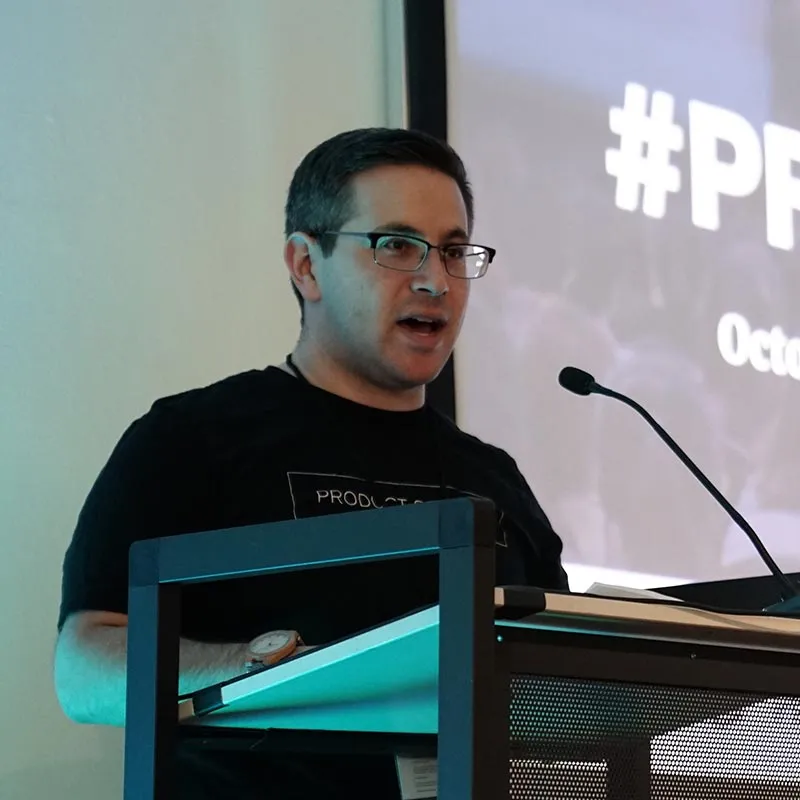6 Product Management Skills That Are Important

Building your product management skill set goes beyond just knowing everything there is to know about your product.
In SaaS, only having the technical know-how for a product will not suffice if you want to succeed as a respected and valued product manager who a) knows how to be both a part of a team and a team leader and b) is committed to developing an outstanding product that exceeds customers expectations.
In this article, we take a look at some of the must-have core product management skills as well as six skills you probably never knew you needed as a product manager.

Table of Contents
What are the Basic Product Management Skills For SaaS?
First things first: There is a core set of skills that all product managers need. And because you deal with so many different teams and work with different products (depending on where you work and where you’ve previously worked), you have to have a pretty large skill set (which makes you super cool, by the way).
If you’re just starting out in product management, or if you’re thinking of making the move over to product management, these are some of the fundamental skills you’ll need.
A General Understanding of Data
You definitely don’t need to be an expert mathematician or statistician, but a basic understanding of how to read data and interpret data accurately is a necessary skill to have.
Luciano Pesci, economist and data scientist, conducted a series of interviews with product managers and discovered that many of them rely on their gut feeling instead of basing decisions on data-driven insights. He also found out that while many of these interviewed product managers felt empowered when using data, they were often uncertain about data interpretation and needed to teach themselves how to do it.
For SaaS product managers, it’s even more crucial to be able to analyze and interpret data because SaaS products, in general, tend to generate huge volumes of data. In this case, it’s important for you, as a SaaS product manager, to become a data-driven one and lead the way in digital transformation.
According to Pesci’s research, the happiest product managers were those who worked at organizations where data was an integral and deeply embedded part of their decision-making processes. And sure, relying on your gut feeling still has its place, but you need the evidence to back it up!
Industry Insights and KPIs
A core product management skill is to have knowledge of market and industry trends and being able to set and track key KPIs, such as customer acquisition costs, customer conversion rate, daily active users, features usage, user churn, Net Promoter Score, customer satisfaction, and customer lifetime value.
We say it time and time again on our blog: The market and competition for SaaS companies is fierce. SaaS companies are growing (and sometimes sadly dying) all the time, and while many feel the race is on to create products customers want, it’s important that running this race doesn’t come at the expense of creating a solid, quality product that truly meets the needs of its niche customer market.
Product managers need to have well-defined use cases and clear customer personas and they must leverage data and customer feedback to find that all important product-market fit. It’s easy to assume that speaking directly with customers is the responsibility of sales and customer success teams, but product managers actually have a lot to gain by communicating directly with active users.
Strategic Thinking
This ties in with having good insight into the market and competition. Strategic thinking requires you, as the product manager, to help with defining the company’s vision and then working towards that vision with realistic and achievable goals.
Strategic planning requires good forecasting skills, critical, rational, and logical thinking, inductive and deductive reasoning skills, the ability to be decisive, the ability to ask the right questions at the right time, good delegation skills, and the ability to set realistic goals and stick to them or change them when necessary.
Strategic thinking is also needed for defining that all-too-important product roadmap of yours. You should be able to predict how much time each phase of the product life cycle will take and when you can better position your product depending on market cycles. You’ll also need to come up with strategies to manage costs and risks that arise along the way.
Basic Business Skills
Once again, you don’t need to have a business degree behind your name, but it’s definitely important that you know the business basics. You might know all the ins and outs of your product, but you also need to be aware of what’s happening in the company because this can have a direct or indirect impact on your product and its development.
Design and User Experience Knowledge
While all skills are valuable, having a decent understanding of UX design etc. is a must-have for product managers in the SaaS world. For SaaS companies to succeed, they NEED to provide an inimitable customer experience. The UX dictates the success of the company, so having a basic knowledge of UX and combining this with the knowledge of your UX researcher, for example, will set you up for success.
Other Common Skills
The other common core skills that are necessary include teamwork and team building, excellent time-management (this is particularly important because you’re working with different teams and stakeholders all the time, so you need to manage your time effectively and wisely, especially if large chunks of your time are being taken up by meetings), compiling reports and preparing documentation, project management, good delegation skills (here, it’s always important that you empower those around you by also giving them responsibility and independence), prioritization skills (and REALLY good ones at that), being able to remain objective (you can read up on objective prioritization frameworks), presentation skills, being able to lead team meetings, and being able to conduct solid user interviews.

5 Product Management Skills That Are Non-Negotiable
Moving on from the core skills that every product manager needs, we’re going to take a look at some other important skills that you may not necessarily have been aware of when you stepped into your career as a product manager.
So, if you REALLY want to be at the top of your game and stand out from the product manager crowd, then here are 5 more skills you need to have to kick some serious S(aaS) ;).
You are an excellent communicator
It may seem obvious that you need to be good at communication, but good doesn’t really cut it in product management ;). You are the spokesperson for your product as well as the voice of the customer for your teams, and as mentioned above, you work with a lot of different teams and deal with external stakeholders on a daily basis. And as the spokesperson for your product, you need to be able to clearly communicate your product vision and strategy to the team.
People often tend to forget just how important communication is. A lack of communication, or the wrong kind of communication, can really make or break a relationship. So, as a product manager, you truly do need to possess strong communication and interpersonal skills.
Having strong communication skills entails being able to give excellent, valuable, and captivating presentations, being diplomatic, and having the ability to listen, to empathize, and be respectful (which we discuss in more detail below). You need to be able to empower and motivate your team and build trust with them not only by what you say, but by what you do as well.
I personally like these words from Nick Hynes, the principal product manager at LetGo:
“Product Managers are directly responsible for synthesizing the voices and needs of senior stakeholders, the product team, and customers. As such, they are the communication hub within their business.”
Co-founder of ProdPad and Mind the Product, Janna Bastow, believes that when things aren’t going well, it’s not because of your product roadmap – it’s how you’re dealing with people management!
Communication is a soft skill that can be honed, developed, and practiced. Excellent communication is critical to drive product success because it’s tied to (among other things) empathy and understanding. I don’t know about you, but I definitely don’t want a leader or manager who doesn’t have the ability to empathize or fails to try and understand the unique needs and goals of his/her team (which is often incredibly diverse and made up of people from different backgrounds and cultures).
Communication can either make or break a team, and without a team, you definitely won’t have a successful product. It comes down to being aware of how you communicate and understanding just how important it is to communicate effectively. There are a variety of resources on how to improve your product management communication skills – and there’s always room for improvement!
You work as a professional negotiator
Alison Doyle, job-search and career expert for The Balance Careers, defines negotiation as follows:
“Negotiation within a work context is defined as the process of forging an agreement between two or parties that is mutually acceptable.”
As a product management manager, you’re working with different stakeholders and teams with different interests, and you are the go-to person for setting priorities and managing conflict and crises. When it comes down to it, you need to be able to compromise – that’s the whole premise of negotiation.
However, it should never come down to meeting in the middle for the sake of it simply because one party may have more sway than the other. It shouldn’t work like that, especially when you’re creating a product for your customers. We recently wrote a post on how to develop a customer-first culture, so when it comes to making decisions, it’s essentially the customer who drives the decisions.
Once again, negotiation might seem like a skill specifically for sales and customer service or success teams, and that’s why this might be an overlooked skill in product management. In fact, Brent Tworetzky, SVP of product at InVision, believes that half of your job as a product manager is negotiation.
So, when you need to negotiate with stakeholders or your internal teams, you’ll need to:
- Back your case up with data (data-driven decision making)
- Establish rapport with the stakeholders, keep your emotions in check, and set a positive mood from the beginning
- Set goals for the negotiation meeting – what do you want to get out of the meeting? Don’t get side-tracked: You have a purpose, so stick to it.
- Avoid both soft negotiation (where you focus too much on not damaging a relationship and therefore only get weaker outcomes) and hard negotiation (where your only aim is to win, and this can come at the expense of relationships) and strive for principled negotiation, which, in the words of Brent Tworetzky, “brings both parties of the negotiation together as a team to find the best outcome in an efficient way that maintains the relationship.”
- Remain as objective as possible and reach a conclusion based on data and creative options generated by different teams.
It’s definitely not an easy skill, but you’re actually negotiating every day without even realizing it. Keep in mind that when you’re negotiating, you need to strive for the following three things according to Brent Tworetzky:
- A positive result and one that all (or at least the majority of) the parties agree to.
- Making the most out of the time you have set for the meeting – be as efficient as possible.
- Maintaining relationships. Breaking trust is an absolute no-no. Boost morale, empower those around you, and handle conflict ethically and responsibly.
You have thick skin, but know when to put your foot down.
Everyone cares about their product. It’s what your salespeople sell, your marketers market, and what your customers work with. Therefore, everyone feels that they have a say in what goes into the product and what is going to make it better.
Many people are going to have different opinions on the decisions you are making, that’s a guarantee. You have to be able to handle harsh criticism and feedback on the decisions you make. A lot of times, conversations can take an emotional turn, and you need to remember that you mustn’t take things personally – this is crucial.
Yes, you are human and we should never deny the human aspect when it comes to work relations. We are emotional, we all have ideas and opinions and what we think may be best for a product or customer, but the emotions need to be balanced out by logic, rationality, and data-driven decisions. Psychologists often talk about the emotional mind, the rational mind, and the wise mind.
The emotional mind and the rational mind need to balance each other out to create the wise mind. Think about it: Too much emotion when making decisions is always risky, and too much rational thinking can kill the passion you have for the work you do and for your product.
This is why you need the wise mind: Combine emotion and rationality to make decisions relating to the product. You are going to have to say no. You are going to have to deal with chaos, confusion, and frustration.
So, no matter what, access your wise mind and always stick to the business plan when all else fails ;).

You are an active listener
Relating to point 3, you know that you need to display a level of understanding when you are dealing with certain stakeholders.
We managed to grab a few words from Brian Sparker, product manager at G2:
“A successful product manager builds a process to improve the joy and output of the team. They ask what needs to happen for a successful product launch and then follows through. They are always listening and learning in order to be better.”
I’ll never forget once reading that we have one mouth to speak but two ears listen. It’s a silly anecdote, but it serves to highlight the importance of listening in the communication process.
Active listening is definitely a critical skill for product success. Not only do you have to listen to your team, you have to listen to you users – really listen to them. What are their paint points? Their unmet needs? Feature requests?
The same comes down to your team: Crisis or conflict management comes down to listening to each party, identifying and acknowledging their concerns, and trying to identify the root causes of issues. In an article by Product Talk, the writer makes an excellent point: We should focus on what the speaker is saying and not on what we want to hear.
And referencing Janna Bastow of ProdPad once again, she suggests investing in a culture of psychological safety. What this means? Making your team feel comfortable and secure when they want to speak up.
Like effective communication, active listening requires a concerted effort – you need to actively practice this skill every time you’re speaking with someone. For some help on how to be better at active listening and communication, you can check out these resources/ books:
- Just Listen: The Secret to Getting Through to Absolutely Anyone
- Crucial Conversations: Tools for Talking When Stakes Are High
- The Power of Communication: Skills to Build Trust, Inspire Loyalty, and Lead Effectively
- Harvard Business Review on Communicating Effectively
- Everyone Communicates, Few Connect: What the Most Effective People Do Differently
You are a jack-of-all trades
There’s a saying that goes, ‘jack-of-all trades, master of none’, but that shouldn’t apply to the product manager because as much as they are the jack-of-all-trades, they can still be the product management master ;). But as a product manager, you will need to have a little knowledge in other disciplines, particularly engineering, design, marketing, sales, and customer success.
In a post for Udemy for Business, former Senior Product Manager at SoundCloud Cole Mercer suggests trying out a few of these different roles for a bit in order to gain some practical experience. Even just shadowing someone else in a different department for a day can give you some good insight, especially in terms of what your customers are experiencing. Watch the sales team do a demo or listen in on a customer success manager’s call.
Familiarizing yourself with these roles will help you understand what challenges each team faces and what their unique goals are. And having a little knowledge of how each team functions is what you need to become a valuable jack-of-all trades product manager.
And this is always valuable in terms of how teams perceive you: If you’re willing to get involved, engage with them, and understand what they do and why they do it, they’ll have a lot more respect for you and they’ll be more likely to trust you when it comes to decision-making and getting everyone on board with your vision and strategy.
I don’t know about you, but I really appreciate someone who’s in a management or leadership position being interested in my work and how it contributes to the overall success of the business and customers. So don’t be afraid to take a hands-on approach and avoid being a leader or manager who is unrelatable and disinterested in what other teams are doing, even if they aren’t directly involved in product.
The Most Important Product Management Skill Everyone Misses
You are a product evangelist and you are a great storyteller.
Effective storytelling is a crucial skill that many people tend to miss when it comes to product management, but it is actually successful product storytelling that will be the defining factor if your product will be well received by your users or not.
Cole Mercer believes that the gift of storytelling and evangelism is the one single trait that truly distinguish the top 1% of product managers from the rest.
To tell a great story, you need to know your audience. And for you, your audience is both internal and external. No matter where you are in the product development cycle, you need to be able to tell a great story behind all your hard work.
As a product manager, you are tasked with the challenge of telling the product story to your internal stakeholders as well as your company as a whole. You will have to do this in a way that everyone can understand and get behind. You have to get them onboard with your vision and strategy, and you have to get them excited and passionate about they company’s product.
When people are passionate about something, they’re all the more eager to put in the effort and create something significant. (Quick aside: At Userlane, we talk a lot about how to make customers fall in love with your product, and that’s what you need to do as a product manager. Get internal and external people to fall in love with the product!)
Once you have settled on the user needs you are solving for, you will want to tell the product story to your users. This is mission critical because if you can’t get your users to understand your product, then you will have a very hard time retaining them and keeping them engaged.
So, where to start when you want to tell your product story? As I mentioned above, you want to get to know your audience. And to get to know your audience, you need the full picture. One of the best ways to approach this is by performing usability research and consulting with internal stakeholders.
Usability research is a UX design skill that you use to analyze products and identify the pain points you want to solve for the user.
Once you have these pain points identified, you can bring them to your stakeholders to further develop the product story.
Remember, stakeholders are also content experts from their particular departments, and they offer a different perspective that perhaps you hadn’t considered at this point. This is why it is best to loop them into the development process as often as you can.
This usually results in numerous benefits:
- By allowing the stakeholders to experience the development process first hand, they will better empathize with the product and engineering teams when something doesn’t go to plan.
- You establish trust by facilitating these important conversations and managing expectations with the stakeholders. Keeping them in the loop, following up on status updates, and bringing them back into conversation when necessary all go a long way when building trust.
The earlier you can circulate your ideas (supported by thorough research and data) with the stakeholders, the sooner you can anticipate potential concerns from each department.
By collecting all of the information from stakeholders and users, the better equipped you will be to be able to tell the right story both users and stakeholders will buy into.
Steve Jobs really is the epitome of being a master storyteller. He got the whole world excited about Apple products and what they could do for the future – and just look at where Apple is today and how successful they have become.
What did Steve Jobs teach us about Apple? Love your product. Be an evangelist. Be a visionary. If you can tell a story that people can get behind, then your business is more likely to succeed.
To become a visionary, you need to be dedicated to reading voraciously, analyzing market trends both past and present, and engaging with other visionaries and evangelists. If you’re passionate about your role as a product manager and passionate about your product, you can achieve great success, no matter what that looks like to you. People are driven first and foremost by emotion, and you can leverage this through storytelling and passion.

Resources to Improve Product Management Skills
Considering that there isn’t actually a specific degree in product management (yet), you’ll have to learn a lot of your skills on the job. However, there is a wealth of really excellent resources and courses available online to either kickstart your career in product management or to help you learn relevant skills or hone your existing ones.
As Cole Mercer says in his article on Udemy for Business, the most critical skills can be learned and taught by corporate L&D efforts, so don’t despair if you’re just starting out in your career!
There are, of course, an abundance of truly excellent resources online that you can use to refine your product management skills. You can check out our very own blog too for some resources. We’ve compiled a list of the top online product management courses that are highly recommended by experts in the field, and we’ve also got a post explaining all the important UI and UX terms you need to know as a product manager (oh, and bonus – this post is written in the form of a story, which ties in with you needing to be a good storyteller).
Many of the course mentioned in our blog post also come with online certifications/ qualifications, which you can, naturally, add to your resume.
You can also check out this cool video by ProductPlan on some of the essential skills all product managers must master.
The Future of the Product Manager
According to research, product managers are receiving some of the highest salary offers in SaaS, which indicates that the demand for and interest in product managers and management is on the rise. In fact, many CEOs of some top tech companies actually come from product management backgrounds, so there is huge room for career growth in this field.
With the explosion of tech and SaaS companies, product managers are proving to be highly valuable because they are, in the words of Mercer, “responsible for shipping the right software for customers”. This means that they are the ones responsible for figuring out how to create a product that their customers both love and that SOLVES their problems. It’s definitely not an easy task at all to be a product manager – let alone an exceptional one!
In such a competitive market, it’s critical for you to set yourself apart from the rest and strive to be in the top 1% of product managers. Achieve this by honing and developing the skills we’ve mentioned above and never stop learning. Product management is one of those fields that requires continuous learning and development. You’ll need to develop and sharpen your skills constantly to keep up with and stay ahead with changing consumer needs and demands. It’s challenging work, but if you’re a product manager, you clearly love a challenge, otherwise you wouldn’t be in this field to begin with ;).
In this post, we’ve looked at both hard and soft skills, and before I end this post, I’d like to leave you with this quote from Brian Sparker (PM at G2):
“Soft skills are criminally under-valued when it comes to product management. I think people tend to focus more on the product side of things, and not the management. A great product manager is a leader of people. They are selfless, never content to settle for mediocrity, and willing to do what it takes to ensure their teams success.”
So be that product manager superhero of your company and keep on working on those superpowers – the world of SaaS needs you now more than ever.
Check out a recording of our webinar with expert Product Manager, Megan Bubley, in which she discusses all the necessary skills you need to develop and implement successful product features.


